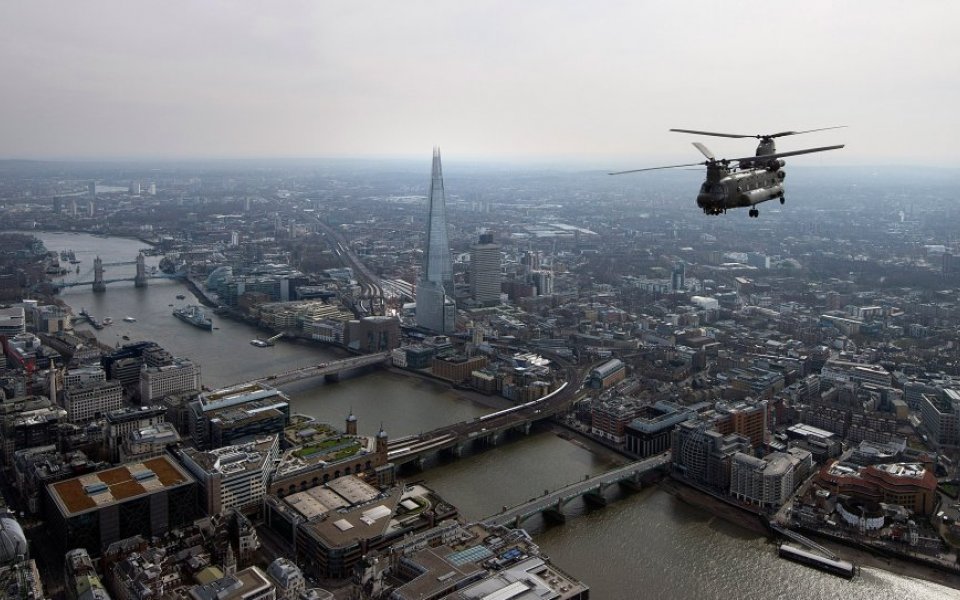What is helicopter money and could it save the global economy from another recession?

Inflation is below target in most of the world's major developed economies. With interest rates at record lows and economists still split on the effects of quantitative easing, helicopter money has been touted as a possible weapon in central banks' arsenals.
The idea
The 18th century philosopher David Hume asked what would happen if some good fairy went around doubling the money in everybody’s pockets. No one would really be richer, he concluded, because prices would double.
The thought experiment was taken further by Nobel laureate Milton Friedman in 1969, when he replaced the fairy with a helicopter. He wrote:
Let us suppose that one day a helicopter flies over this community and drops an additional $1,000 in bills from the sky, which is of course, hastily collected by members of the community. Let us suppose further that everyone is convinced that this is a unique event which will never be repeated.
Friedman says people will not want to hold all the cash. Getting rid of excess cash is easy, you just have to spend more than you receive. He believes a helicopter drop would boost spending and, in an economy that is operating at full capacity, lift prices. It has led some economists to ponder whether the Bank of England could use such a technique to bring inflation back to its elusive two per cent target.
But undertaking the policy is riddled with practical difficulties.
A helicopter drop is very different to traditional quantitative easing (QE). When the Bank does QE, it creates new electronic bank reserves, and buys something with them, normally government debt. It gets something in return. That means the Bank’s assets – the stuff it owns – and the bank’s liabilities – the stuff it owes other people – have gone up by the same amount.
Read more: Mark Carney rules out negative interest rates….for now
Balance sheet problems
Bank notes are a liability of the central bank. With helicopter money, the bank would be creating a new liability, but would not be receiving an asset. When a bank, like any business or household, has liabilities greater than its assets, it is insolvent.
The Bank of England has around £3bn of capital. That means it could create £3bn of new notes and dish them out before it became insolvent.
Insolvency is a problem for a central bank. It pays interest on its liabilities, which it pays using interest received on its assets. The interest it decides to pay on its liabilities are a vital part of the way it controls its main policy interest rate, Bank rate.
The Bank of England does not pay interest on bank notes, but it does pay interest on reserves kept by banks, which bank notes can be exchanged for.
Read more: Four things the BoE can do if we're plunged back into a crisis
Losing control
Because it could not afford to pay interest, the helicopter drop would erode the ability of the central bank to raise interest rates in future.
To boost the bank’s assets so it can pay interest, the government could step in and give it an asset free of charge. This asset would be an interest paying government bond.
Yet this would mean, in essence, the bank had created new money and received a government bond in return. This would be more like traditional QE, and would not fit the definition of helicopter money.
The central bank could also create money to pay the interest on its liabilities. But this would mean it was doing a helicopter drop to pay for its previous helicopter drop. Such a situation would quickly spiral out of control as new helicopter money is required to pay interest on old helicopter money.
The Bank could do a helicopter drop if it promised not to pay interest on new reserves. However, this would mean giving up a large amount of control over Bank rate and therefore future inflation.
The helicopter drop is a nice thought experiment to help understand the relationship between money, spending and prices. But ultimately, it would undermine the current framework in place for adjusting interest rates to control inflation. The Bank is unlikely to seriously consider it.